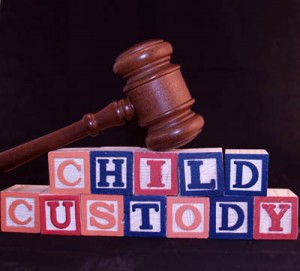Supreme Court Justice Colangelo sitting in Westchester County recently had an unusual case presented to him. In this case, the mother had paraded her son from one forensic psychologist to another. This was done in a concerted effort to destroy his relationship with this father. In addition, the mother had hired a former actress in soap operas and paid her $57,000 to help prepare her for her starring role as a witness in the custody case involving her son.
The Trial
There was a trial which lasted 18 months before Justice Colangelo. There were 25 days of testimony by the mother alone. Justice Colangelo found she was fixated on destroying the father’s relationship with the son and therefore “cannot be trusted” to make decisions regarding the parties’ son. Justice Colangelo in his decision went on to state “when left to her own devices she misused her decision making authority to trot a mentally healthy child to numerous psychological appointments clearly aimed to deprive him of a relationship with his father – a result that may have, and if allowed to recur certainly will rob [the boy] of his remaining childhood.” Justice Colangelo changed custody from the mother to the father in spite of the recommendations made by the court appointed psychologist and the attorney for the child.
Hired Forensic Psychologist
Justice Colangelo’s decision deals with the issue of parties’ to custody litigation hiring forensic psychologists to promote one parent’s arguments and with regard to the issue of trial consultants preparing witnesses with regard to their testimony. The judge found the mother was evasive during her two weeks of testimony.
Judge Colangelo indicated in his decision the mother had hired Daniel Lobel, a Westchester psychologist, and paid him $6,000 per day to prepare subjective, result oriented testimony. The judge also stated the mother had spent more than 50 hours with a psychologist, Jonathan Gould, who is a well known forensic evaluator, who helped prepare her for her interview with the court appointed forensic psychologist, Stephen Herman, from Manhattan. Justice Colangelo found the mother had met with numerous mental health professionals and a number of lawyers with regard to her desire to “deprive [the boy] of a meaningful relationship with his father.” The judge found “such a goal might have proven laudable had [the father] actually been the abusive monster [the mother] sought to depict.”
Father a Caring Man
Justice Colangelo went on to state there was no evidence presented at trial that the father was anything other than a caring, responsible man who recognized the need for both parents in the child’s life. Justice Colangelo found the mother’s behavior to be “inimicable” to the welfare of the child. The mother’s arguments that the child needed to be protected from his father were completely without merit.
Justice Colangelo in his decision went on to state “absent the imposition of some stringent boundaries on [the mother’s] prerogatives and conduct, based upon her actions to date, [the child] will surely spend the remainder of his childhood being prodded and probed by a constant parade of mental health professionals seeking to find something wrong with a healthy child who needs only a true, loving relationship with both parents.”
It should be noted the mother has appealed this decision.




 This was a victory for father’s rights.
This was a victory for father’s rights.



 Elliot S. Schlissel is a
Elliot S. Schlissel is a 





